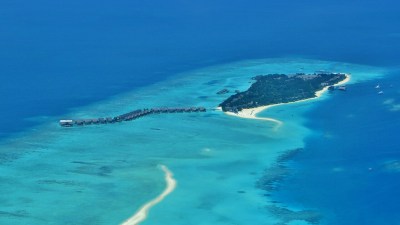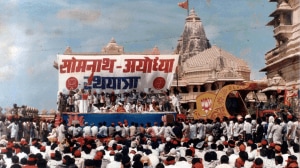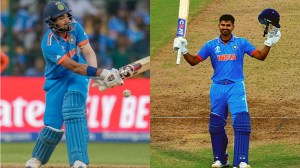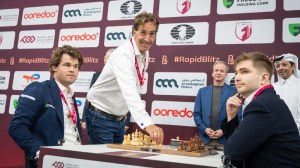Iraq alive and kicking
The Olympic Games are supposed to be about the relationship of muscles to morality, as Baron Pierre de Coubertin would say. 8216;8216;Phys...

The Olympic Games are supposed to be about the relationship of muscles to morality, as Baron Pierre de Coubertin would say. 8216;8216;Physical exercise holds, in a certain manner, the fundamental basis for a means of ethical conduct,8217;8217; he wrote. Actually, more often than not the modern Olympics aren8217;t about that at all, but about doping fraud, political infighting, and giving McDonald8217;s and General Electric a foothold in China.
But the Iraqi soccer team reminds us that the Olympics can still be good for something 8230; good. At their best, the Olympics are like taking a picture of the world as you8217;d like it to be. Sunday, an ambitious and united Iraqi team embodied the reason we gather for the Games, and why they can still be a powerful instrument. As the Iraqis advanced to the Olympic quarter-finals with an 2-0 victory over Costa Rica at Karaiskaki Stadium, they seemed a balm for the problems of their occupied and war-fractured yet prideful country.
This is what it means to be an Iraqi sportsman: Your successes are enveloped in sadness, and yet you have a deep craving for triumph. Iraqi partisans made up the vast majority of the 12,183 in Karaiskaki Stadium, and they began lining up hours before the game.They passed out flags, shared mass hugs, shook beer bottles and sprayed themselves with foam. Provoked by an unpopular decision from the referee, they pelted the field with bottles, and generally had to be quelled every few minutes by stadium security, which seemed reluctant to ruin their good time. With each of Iraq8217;s two goals, hosts of fans vaulted the balustrades and rushed the field to tackle the players and kiss them on their faces.
The Iraqis, crisp in their whites with green stripes, were a unified team of Shiites and Sunnis, and one Kurd, Harwa Mulla Mohammed, who was the hero of the game. He broke a scoreless tie in the 67th minute with a left-footed rocket, and then set up Karim Mahdi for his header.
Invariably, the Iraqis are asked to say what a soccer victory means to a team that a short time ago reportedly faced torture if it lost or angered Saddam Hussein8217;s son, Uday, who ran the Olympic committee. But the members of the delegation were reluctant to look over their shoulder at horrors. 8216;8216;Rather than dwell on the past they want to focus on opportunities in front,8217;8217; said coach Adnan Hamad. The International Olympic Charter, an admittedly impracticable document, reads as follows. 8216;8216;The goal of the Olympic Movement is to contribute to building a peaceful and better world by educating youth through sport practiced without discrimination and in the Olympic spirit, which requires mutual understanding with a spirit of friendship, solidarity and fair play.8217;8217;
The Olympic charter is an impossible goal and it8217;s too much to expect of athletics to solve the seemingly intractable problems of Iraq. But the striving for it is the most important thing that will happen here during these two weeks.
In the midst of broken streets, unthinkable suffering, and unrelenting suppression, Iraq has fashioned something beautiful, nonviolent and reconciled, a team of swift and elegant-footed young men. That8217;s what we8217;re all here for, and it8217;s the only real reason to come to an Olympics.
LA Times-Washington Post
- 01
- 02
- 03
- 04
- 05































